On Girls’ Season Premiere, And Slouching Towards Adulthood
Girls' third season premiered last night with a double episode, continuing Dunham's quest to make the personal growth of her characters seem as realistic as their shortcomings. [Spoilers!]
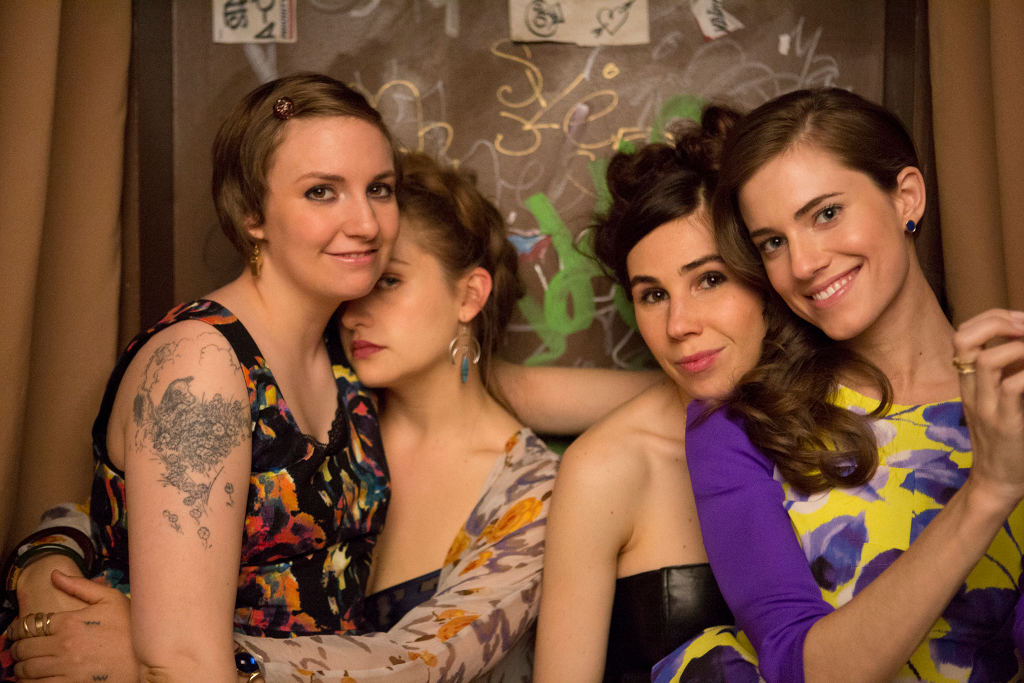
This is a recap of last night’s two-part season premiere of Girls. That means there will be spoilers.
–
On Christmas Eve last year, my sister Mia and I drove to our parents’ place for the holiday. We talked about family stuff, and work, and our boyfriends, and whether or not ‘Roar’ is a legitimately good pop song or if it’s just tricked all of us with some kind of subliminal YVAN EHT NIOJ magic buried in the chorus.
At one point she said, “Heyy,” in that sheepish, three-syllable way that tends to signal an imminent embarrassing confession or delicate subject matter, almost as if she was bracing herself for something: “Heyy – do you… like your health insurance?”
“Um,” I said, catching her drift, “yeah? I mean, I mainly just use it for the dentist and my contacts, but it’s good to know it’s there, and it’s not too expensive…” I was about to start in on the relative benefits of my extras package, but instead I just trailed off. Mia said something like “Yeah, cool” and we talked about her housemate’s new kitten instead.
I didn’t even go to the dentist last year. I meant to, and I know I should have. But I feel this strange resistance in my brain whenever I act “responsibly”, or like my image of Myself As A Responsible Adult. When I get home from work and get straight into my gym gear, or have salad for dinner instead of cheese tortellini and sriracha, a voice in my head sneers, “Who even are you?” That voice and I have spent many an hour skipping dinner, drinking at breakfast, not flossing, and reading Veronica Mars fanfiction instead of working on articles, because what am I – some kind of responsible adult? That voice and I eat hot chips in the park and mock the glowing, Bupa-ad version of me as she jogs past.

I resist good decision-making, I think, for the same reason Jessa sulks and snipes her way through rehab and Hannah rejects the experience of exploring new territory right after complaining that her journey is boring and lacking in spiritual significance – because adulthood/rehab/hiking doesn’t fit with the identity we’ve spent years constructing for ourselves. I want to have healthy teeth, but going to the dentist is something that boring, non-creative, regular folks do, and at 27 I still have my seventeen-year-old’s determination to be extraordinary — as if that will magically protect me from cavities.
Hannah does not HIKE. Hannah lies on the ground in the forest and listens to This American Life on her phone, and it is comforting, but not satisfying.
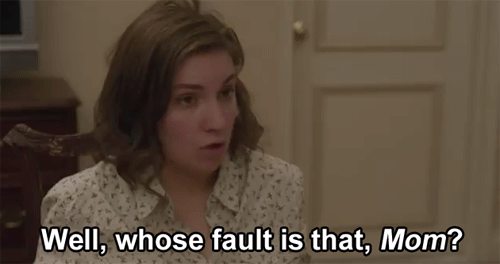
Jessa, who last season was the world’s smuggest newlywed, really does want to be happy – but she wants to do it as a person who takes a lot of drugs, goes on the lam in the night without saying goodbye, and gets married on a whim. It’s slowly dawning on her that while her self-image might be incompatible with rehab and looking after herself, actually being happy and well might be incompatible with being a freewheeling caricature. She sees both sides of that self in Richard E Grant’s character, her fellow inmate, Jasper: one day he’s a smoke-wreathed mirror of her, a version of adulthood she can aspire to, a fellow hedonist conceding wryly to the demands of the humdrum world for a little bit so he can get on with LIVING LIFE! The next he’s a sad addict pawing at her, as unromantic and unevolved a man as you could ask for.
It’s the closeted, vest-wearing abuse survivor Laura, whom she mocked for sharing her feelings, that Jessa has an honest connection with – no matter whether she actually went to see Laura because she wanted to apologise, or just to stir shit up. Jessa’s “deep well of sadness” wants out, and while she’s scared of how she might change if she deals with it, she’s clearly getting tired of being the Teflon hippie.
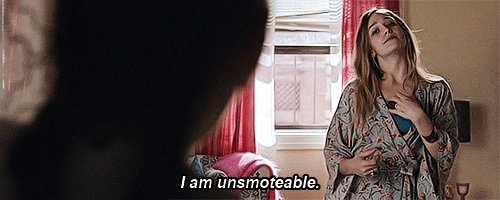
A note on romance: I’m rooting for Hannah and Adam, I really am, because while their performed selves are obnoxious and grating on one another, their real, knowable selves are good for each other; she needs to learn how to take his love and devotion graciously and return it kindly and thoughtfully, and he needs to learn that his worst self (ie. his drinking self) is not his whole self. Both of them are, like many of us, secretly worried or convinced that their worst selves are their essential selves; both feel like this worst self was recently confirmed by external factors (Adam by his falling off the wagon and treatment of Natalia, and Hannah by her OCD relapse and subsequent breakdown). When we see them in these first two episodes, Hannah is having friends over and taking her meds and writing when she’s supposed to; Adam is supporting her emotionally, and begrudgingly engaging in her friends’ lives, and they’re both making compromises. They’re also both being dicks, but you can see a way through for those crazy kids. (Can’t you just picture their draughty writer-artist-carpenter loft in a spread on The Selby in ten years, with, like, two pet ferrets and a fat naked baby called Didion, and elk bones and old Believers piled everywhere?)
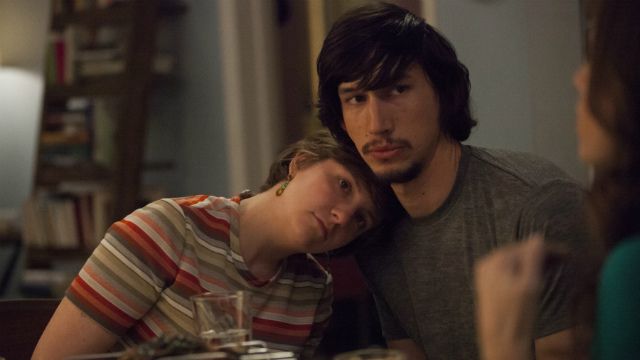
So yes, Dunham’s created a plausibly intense relationship between the two, a connection that’s helped enormously by Adam Driver’s mercurial, awkward charisma. But the most significant romance in the show might actually be the tidal attraction and repulsion of the idea of “adulthood” itself. There used to be much clearer markers between the territories of adult and child; without getting into hand-wringing New York Times feature-speak about “kidults”, this extra five- to fifteen-year period where we Young People dance around the grown-up pool dipping toes in and squealing is fucking tiresome.
Not everyone has Shoshanna’s dogged compulsion to Become An Adult, to follow a neat path out of college and into a well-paying job and/or marriage.
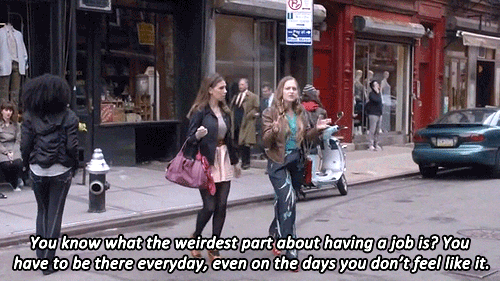
This extra gap is a good thing, for most people — I’m not decrying the end of the era where everyone got married at 19. Nor am I suggesting that people who were (or are) married at 19, or had to grow up fast for any reason, didn’t struggle through their 20s in some way, making it up as they went along. Everyone – everyone – is making it up as they go along. Adults are dumb and impatient and weak and indecisive and petty and terrified and selfish – and very few will be able to pinpoint the moment when they became a grown-up. I have health insurance and my name on a lease and I eat breakfast most days now, but I only feel more like an adult every time I yank a shitty little pearl of wisdom out of the oyster of a huge fuck-up.

Girls is a show about fucking up, and Dunham is trying very hard to make the personal growth of these characters seem as natural and realistic as their shortcomings, as opposed to the sitcom-y cause-and-effect storylines even “prestige” dramas succumb to pretty regularly. (“Well, Walt, I hope you’ve learned a valuable lesson about Not Being A Vicious Prick!”) And yes, that can make it feel aimless and frustrating at times, and Dunham herself has fucked up many things in the first couple of seasons.
“I’ve learned so much in the past few years about, sort of, intersectionality, the way that feminism has underserved women of color. I really try to educate myself in those areas,” she told journalists last week, responding to the usual claims that she’s just a massive, massive racist. Does it address the inherent issues in her show, in TV, in society, man? Nope, but she’s got nine more episodes to show us what she’s learned.
We do all fuck up, we don’t always learn our lessons immediately, and we are often much harder on ourselves than the most righteously enraged Tumblr could ever be on this weird, smart, prickly show. It is far from perfect, but that doesn’t mean it has nothing to teach us.
–
Girls season three screens on Monday nights on Showcase.
–
Caitlin Welsh is a freelance writer. She has written for The BRAG, Mess + Noise, FasterLouder, Cosmopolitan, TheVine, Beat, dB, X-Press, and Moshcam.